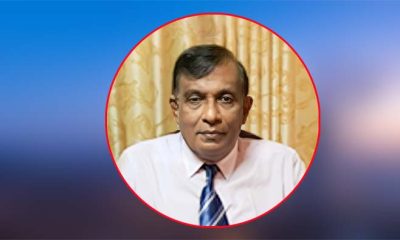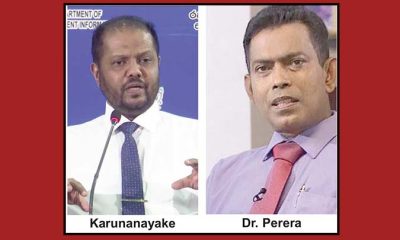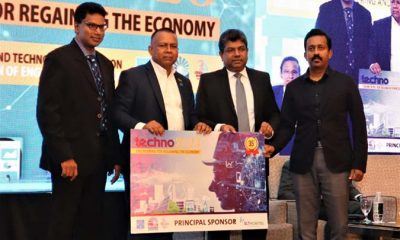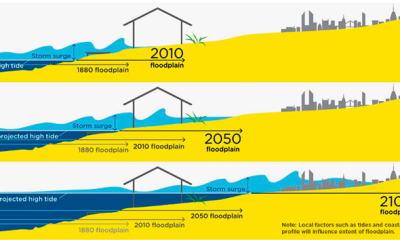News
Equitable sharing of water is a powerful factor in maintaining peace and harmony among communities

The equitable sharing of water stored in the upper reaches of the Ampara district, which is predominantly Sinhalese, with the Tamil and Muslim communities in the lower coastal area in the Batticaloa district, is a powerful factor in maintaining peace and harmony in the eastern province, Dr. Hilmy Sally, independent irrigation and water management professional recently said at a conference organized by the Institution of Engineers Sri Lanka (IESL).
Sally who was speaking on how water can be used to promote peace said that Sri Lanka has a historic tradition of this.
“The pinthaliya placed at the village can be considered as a water for peace,” he said.
He pointed out that the Senanayaka Samudraya, Sri Lanka’s largest reservoir located in Ampara, provides water for agricultural and drinking water requirements of all three major communities.
“In early 2000, the water from Nachchaduwa in the Upper Malwathu Oya basin where the Sinhalese live was released to satisfy the water needs of Tamil farmers in the lower Malwathu Oya basin and as a gesture of thanks and goodwill, the Tamil community actively participated in the annual ‘Poson dansela’. These examples show the pivotal role that water can play in promoting reconciliation and long lasting peace, and fostering a common Sri Lankan identity,” Sally said.
Dr. Sally said the Mahaweli Development Project was designed to divert excess water in the Mahaweli River basin to the dry areas of the North Central, Northern and Eastern Provinces of Sri Lanka. However, even after 50 years of the commencement of the project, several sub-projects, especially in the North, have not been implemented.
“So the driest and most water needy areas still wait for water because the North Central Province Canal project has not been established. The North Central Province canal component includes water transfer over 200 kilometres from South to North. 70 percent from gravity transfer from Randenigala Reservoir and the rest through pumping from lower Mahaweli River at Janaranjana Wewa. The implementation has been delayed for several reasons. There are unsubstantiated objections about the cost of water lifting and inadequacy of water for the North Central Province Canal diversion,” he said.
He added that there is also fear among professionals and communities of the Northern Province that the canal command may declare a Mahaweli area which will place the land under the Mahaweli Authority. They believe this will lead to loss of control of lands under the Northern Provincial Council, Sally said.
“The canal project could have lifted the farming communities living in the Northern Province,” he said.
The expert said that Sri Lanka is rich in water resources but has issues with water stress. Sri Lanka also ranks high as a hotspot on the Global Climate Risk Index, specifically in regard to climate change induced risks to water.
“Climate externalities create vulnerability in the country’s water infrastructure and water security. This can lead to severe consequences for lives and livelihoods, especially in sectors like agriculture. There is an urgent need for strategies to move from water risk and conflict to water cooperation and understanding,” he said.
Sally said conflicts and disputes are often brought on by competing interests and not necessarily because there is too little water. Sri Lanka has multiple levels of decentralization and there is also unclear demarcation of roles and responsibilities at each level.
“There is a lack of integrated technological and institutional framework to promote sustainable resource management in Sri Lanka,” he said.
Sally said local communities are not always consulted in decision making about ‘their’ water although these communities ultimately have to bear the costs and impacts of some of these projects. (RK)
News
US sports envoys to Lanka to champion youth development

The U.S. Embassy in Colombo welcomed the U.S. Sports Envoys to Sri Lanka, former National Basketball Association (NBA) and Women’s National Basketball Association (WNBA) players Stephen Howard and Astou Ndiaye, from June 8 through 14.
The Public Diplomacy section of the U.S. Embassy said that it would launch a weeklong basketball program intended to harness the unifying power of sports, made possible through collaboration with Foundation of Goodness and IImpact Hoop Lab.
While in Sri Lanka, Howard and Ndiaye, both retired professional basketball players, will conduct a weeklong program, Hoops for Hope: Bridging Borders through Basketball. The Sports Envoys will lead basketball clinics and exhibition matches and engage in leadership sessions in Colombo and Southern Province for youth aged 14-18 from Northern, Uva, Eastern and Western Provinces, offering skills and leadership training both on and off the court. The U.S. Envoys will also share their expertise with the Sri Lanka Basketball Federation, national coaches, and players, furthering the development of basketball in the country. Beyond the clinics, they will collaborate with Sri Lankan schoolchildren to take part in a community service project in the Colombo area.
“We are so proud to welcome Stephen and Astou as our Sports Envoys to Sri Lanka, to build on the strong people-to-people connections between the United States and Sri Lanka,” said U.S. Ambassador Julie Chung. “The lessons that will be shared by our Sports Envoys – communication, teamwork, resilience, inclusion, and conflict resolution – are essential for leadership development, community building, equality, and peace. The U.S. Sports Envoy program is a testament to our belief that sports can be a powerful tool in promoting peace and unity.”
News
Rahuman questions sudden cancellation of leave of CEB employees

SJB Colombo District MP Mujibur Rahuman in parliament demanded to know from the government the reasons for CEB suspending the leave of all its employees until further notice from Thursday.
MP Rahuman said that the CEB has got an acting General Manager anew and the latter yesterday morning issued a circular suspending leave of all CEB employees with immediate effect until further notice.
“We demand that Minister Kanchana Wijesekera should explain this to the House. This circular was issued while this debate on the new Electricity Amendment Bill was pending. There are many who oppose this Bill. The Minister must tell parliament the reason for the urge to cancel the leave of CEB employees,” the MP said.However, Speaker Mahinda Yapa Abeywardena prevented Minister Wijesekera responding to the query and said that the matter raised by MP Rahuman was not relevant.
News
CIPM successfully concludes 8th Annual Symposium

The Chartered Institute of Personnel Management (CIPM) successfully concluded the 8th Annual CIPM Symposium, which took place on 31st May 2024. Themed “Nurturing the Human Element—Redefining HRM in a Rapidly Changing World,” the symposium underscored the pivotal role of human resource management (HRM) in today’s dynamic global landscape. Since its inception in 1959, CIPM has been dedicated to advancing the HR profession through education, professional development, and advocacy, solidifying its position as Sri Lanka’s leading professional body for HRM.
Ken Vijayakumar, the President of the CIPM, graced the occasion as the chief guest. The symposium commenced with the welcome address by the Chairperson, Prof. Arosha Adikaram, followed by the Web Launch of the Symposium Proceedings and Abstract Book by the CIPM President. The event featured distinguished addresses, including a speech by Chief Guest Ken Vijayakumar, President of CIPM, and an address by Guest of Honor Shakthi Ranatunga, Chief Operating Officer of MAS Holdings Pvt. Ltd., Sri Lanka.
The symposium also featured an inspiring keynote address by Prof. Mario Fernando, Professor of Management and Director of the Centre for Cross Cultural Management (CCCM) at the University of Wollongong, Australia.
Vote of Thanks of the inauguration session was delivered by Dr. Dillanjani Weeratunga, Symposium Co-chair.
The symposium served as a comprehensive platform for researchers to present their findings across a wide range of critical topics in HRM. These included Cultural Diversity and Inclusion, Talent Development and Retention, Ethical Leadership and Corporate Social Responsibility, Adapting to Technological Advancements, Mental Health and Well-being at Work, Global Workforce Challenges, Employee Empowerment, and Reskilling and Upskilling.
The plenary session was led by Prof. Wasantha Rajapakse. Certificates were awarded to the best paper presenters during the valedictory session, followed by a vote of thanks delivered by Kamani Perera, Manager of Research and Development.
The annual symposium of CIPM was a truly inclusive event, attracting a diverse audience that spanned undergraduates, graduates, working professionals, research scholars and lecturers. This widespread interest highlights the symposium’s significance in the field of HRM, offering a unique opportunity for everyone to network and learn from scholarly brains.The CIPM International Research Symposium was sponsored by Hambantota International Port, Sri Lanka Institute of Information Technology (SLIIT), E B Creasy & Co. PLC, and Print Xcel Company.
























